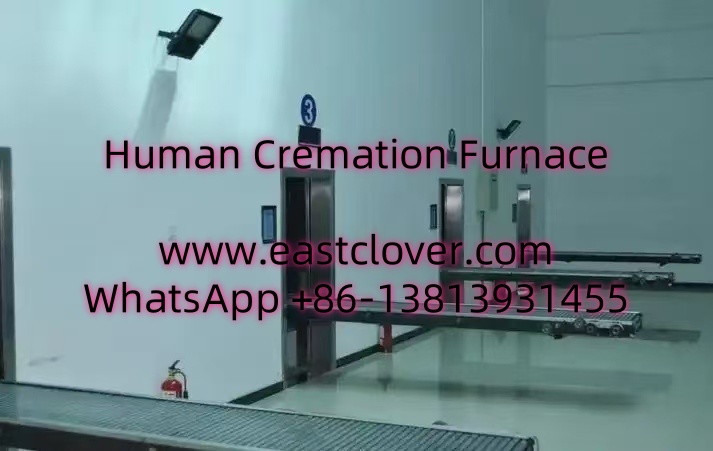Addressing Lagos’ Urban Burial Crisis Through Innovation
Lagos, Nigeria’s economic powerhouse and Africa’s most populous city, faces a growing challenge: the scarcity of burial space. With a population exceeding 20 million and limited land area, traditional burial practices are becoming unsustainable. Overcrowded cemeteries, environmental concerns, and rising costs for funeral services have created an urgent need for alternatives. One innovative solution gaining traction is the use of portable container cremation furnaces, which could revolutionize how Lagos manages end-of-life services while addressing space and environmental constraints.
The Burial Crisis in Lagos
Lagos’ rapid urbanization has outpaced infrastructure development, including burial grounds. Public cemeteries are filled beyond capacity, and private burial plots are prohibitively expensive for most residents. The city’s high population density—over 20,000 people per square kilometer—leaves little room for expanding traditional cemeteries. Environmental issues, such as groundwater contamination from decomposing bodies, further complicate the problem. Additionally, cultural preferences for elaborate burial ceremonies and interment clash with the practical realities of urban space limitations.
Portable Container Cremation Furnaces: A Modern Solution
Portable container cremation furnaces are modular, self-contained units designed to operate in diverse urban environments. These systems are housed within repurposed shipping containers, making them easy to transport and install in strategic locations across the city. Equipped with advanced combustion technology, they efficiently reduce human remains to ash while minimizing emissions. Key features include:
- Mobility: Units can be relocated to areas with high demand, reducing the need for permanent crematorium infrastructure.
- Eco-Friendly Design: Filters and scrubbers reduce particulate matter and greenhouse gas emissions, addressing air quality concerns.
- Scalability: Multiple units can operate simultaneously, increasing capacity during crises like disease outbreaks.
- Cost-Effectiveness: Lower operational costs compared to traditional burial or permanent crematoriums.
Benefits Over Traditional Methods
Space efficiency is the most immediate advantage. Cremation reduces the physical footprint of burial by over 90%, allowing ashes to be stored in columbariums or scattered in designated areas. This approach preserves land for housing, agriculture, or green spaces. Additionally, cremation eliminates risks associated with overcrowded cemeteries, such as soil contamination and disease spread. For families, portable units offer flexibility in memorial planning, as services can be held closer to communities without lengthy transportation of remains.
Challenges and Considerations
While promising, the adoption of portable cremation faces hurdles. Cultural and religious beliefs in Lagos often favor traditional burials, necessitating public education campaigns to promote acceptance. Regulatory frameworks for cremation are underdeveloped in Nigeria, requiring collaboration between policymakers and community leaders. Initial setup costs, though lower than building permanent facilities, may still require government subsidies or private-sector partnerships. Addressing these challenges will require a holistic approach that balances innovation with cultural sensitivity.
Environmental and Social Impact
Portable cremation furnaces could significantly reduce Lagos’ environmental burden. Traditional burials involve non-biodegradable caskets and embalming chemicals that leach into soil and water. Cremation, when optimized with clean energy sources, offers a greener alternative. Socially, decentralized cremation services could democratize access to dignified end-of-life care, particularly in low-income neighborhoods. By integrating these units into existing healthcare or waste management systems, Lagos can create a sustainable model for other megacities facing similar crises.
www.southclover.com
Portable container cremation furnaces represent a pragmatic solution to Lagos’ burial space crisis. Their mobility, efficiency, and environmental benefits align with the city’s need for adaptable urban infrastructure. Success, however, depends on overcoming cultural barriers and fostering collaboration between governments, communities, and technology providers. By embracing innovation, Lagos can transform its approach to mortality management—setting a precedent for sustainable urbanization in Africa and beyond.
FAQs
What is a portable container cremation furnace?
A modular, mobile unit housed in a shipping container that performs cremation. It’s designed to operate in urban areas with limited space.
Why does Lagos need this solution?
Overcrowded cemeteries, high land costs, and environmental risks make traditional burial unsustainable. Cremation reduces land use and pollution.
Are these furnaces environmentally friendly?
Modern units include emission control systems to minimize air pollutants. They also eliminate groundwater contamination from burials.
How can cultural acceptance be improved?
Community engagement, education on benefits, and involving religious leaders in policy discussions can foster trust and adoption.
What is the cost compared to traditional burial?
Cremation is generally cheaper due to reduced land and material costs. Portable units further lower expenses by avoiding fixed infrastructure.
How quickly could these units be deployed?
Shipping container systems can be operational within weeks, depending on local regulations and site preparation.

Comments are closed